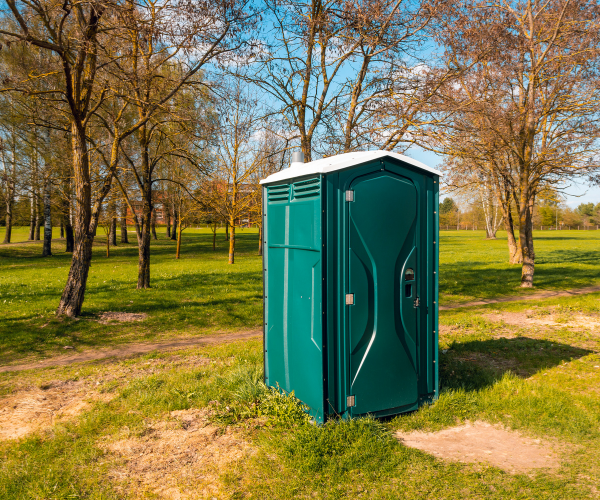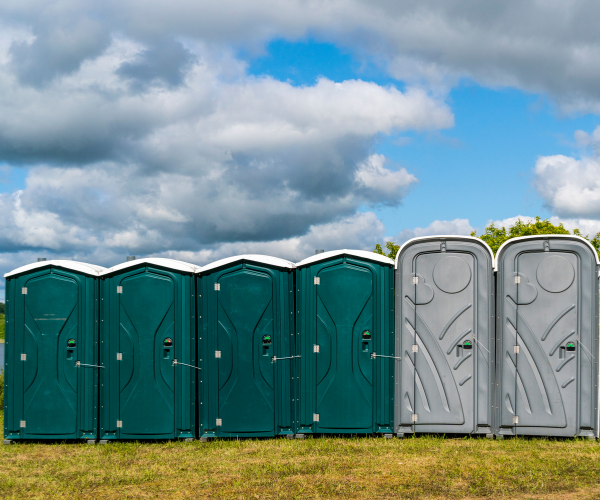Portable Toilets offer numerous eco-friendly advantages, key among which is the conservation of water resources. Traditional flushing toilets use significant amounts of water for every use, whereas Portable Toilets are designed to operate with minimal water consumption. This not only saves water but also reduces the environmental impact associated with water treatment and distribution processes. Additionally, modern Portable Toilets are built with materials that are recyclable and environmentally safe, contributing less to landfill waste than many conventional restroom facilities.
Another green advantage is the containment and proper treatment of waste, which prevents pollution and contamination of local water bodies. By confining waste to a controlled environment, Portable Toilets help maintain hygiene and environmental health, especially in outdoor settings such as parks, festivals, and construction sites. Many service providers prioritize using environmentally conscious cleaning products and methods to minimize chemical use during sanitation processes.
Furthermore, Portable Toilets can be made from biodegradable materials that break down over time, reducing their overall environmental footprint. Their design often incorporates features like solar lighting and natural ventilation to further decrease their reliance on nonrenewable energy sources, making them a more sustainable sanitation option.
As the concern for the environment grows, many rental companies are now offering eco-friendly options that use less energy and produce fewer emissions during transportation and set-up, emphasizing the role Portable Toilets can play in promoting sustainable practices in both rural and urban settings. When planning an event or managing a site, selecting Portable Toilets reinforces a commitment to environmental stewardship by promoting practices that reduce waste and environmental impact.

Portable Toilet Rentals in Plantation, Florida
Call today for a free quote (772) 280-9299
Portable Toilet
Fast, Easy, & 100% Free To Get Started
Over 20 Years of Experience
With over 20 years of experience serving Plantation, we are proudly rooted in the community and dedicated to providing top-quality portable restroom services. Our commitment to excellence ensures that clients receive the best solutions tailored to their needs.
Unmatched Quality Service
Our dedicated team delivers unmatched quality service that caters to the unique needs of each client. Committed to excellence, we ensure that all portable toilet solutions are reliable and meet the highest industry standards.
Fast and Efficient Delivery
Experience quick and efficient delivery with our portable toilet services. We prioritize timely service to keep your events and projects running seamlessly without any delays.
Reliable Portable Toilet Solutions in Plantation
Call for a Free Quote Today
(772) 280-9299
Experience the dependable and convenient Portable Toilet rentals we offer in Plantation, Florida. As a locally owned company, we deliver high-quality, reliable service for all your sanitation needs. Whether you're managing a construction site, planning a party, or organizing a large festival or wedding, our services are designed to meet your requirements. Catering to Plantation and nearby areas, we guarantee clean, well-maintained units suitable for any event or job site. With a focus on reliability and local connections, our service provides the personalized attention you can trust. Select us to ensure confidence and a stress-free experience at your next event.


Standard Portable Toilet
Our standard porta john rental units are durable and reliable for any commercial build site, housing development, public works project, or remodel job.
Features include dome lighting, grated floors, and an “In-Use” locking mechanism for privacy and comfort.
Regularly maintained, inspected, and cleaned by FusionSite at your location.

Wheelchair Accessible Restrooms
Developed as an alternative to full ADA-compliant restrooms, the Liberty is a spacious, wheelchair-accessible unit that can also be promoted as a family-sized restroom.
Includes a patented flat-floor system for easy wheelchair access and maneuverability.
Handrails, paper holder, and rotary latch are designed for simple, intuitive end-user operation.

Portable Sink
Portable hand washing stations are essential for keeping your work site sanitary and clean.
Features hands-free foot pumps, liquid soap, and paper towels.
Perfect for job sites without water hookups, these units can handle hundreds of washes between services.
We Proudly Serve
Standard Portable Toilets
Our Standard Portable Toilets offer reliable and sanitary solutions for a variety of events throughout Florida.
High Rise Portable Toilets
Perfect for high-rise projects, these Portable Toilets ensure convenient and accessible sanitation in Plantation.
Restroom Trailers
Experience luxury and comfort with our Restroom Trailers, ideal for upscale events in Plantation.
Roll off Dumpsters
Our Roll off Dumpsters provide efficient waste management solutions for any large-scale project in Plantation.
Septic Tank Cleaning
Achieve optimal sanitation standards with our professional Septic Tank Cleaning service throughout Florida.
Grease Trap Cleaning
Maintain hygiene and compliance with our efficient Grease Trap Cleaning services in Plantation.
Fencing & Barricades
Our Fencing & Barricades service offers secure, reliable solutions for site management in Florida.
Residential Storage
Secure and straightforward Residential Storage options are available in Plantation.
Plantation Portable Sanitation Solutions
Obtaining a quote and scheduling delivery for Portable Toilets has never been more straightforward. Our dedicated team is here to assist you every step of the way, simplifying the process to meet your sanitation needs in Plantation. With just a few clicks, you can receive a personalized quote and arrange delivery that fits your schedule. Our state-of-the-art system ensures that you don't have to worry about complicated logistics—we handle it all. We pride ourselves on offering transparent pricing and flexible delivery options, making it easy for you to choose the perfect sanitation solution for your event or project. Count on us for hassle-free rental services that prioritize your convenience and satisfaction.

Embrace the local charm of Plantation while enjoying the reliable services of our Portable Toilets. Whether you're attending the lively Plantation Art in the Park event or exploring the stunning trails of Plantation Heritage Park, our clean and convenient sanitation solutions are there to enhance your experience. Our commitment to the community means we understand the unique needs of Plantation residents and visitors. Proximity to nature, paired with high-quality portable restrooms, ensures comfort for all your outdoor adventures. Opt for our services to guarantee satisfaction and reliability. We provide solutions that uphold Plantation's reputation as a vibrant and welcoming community.
Our company leads as the top choice for Portable Toilet rentals in Plantation, consistently delivering exceptional service.
With a deep understanding of Plantation's unique characteristics, we customize our offerings to align with local demands. Our wide range of portable restroom solutions guarantees the ideal match for any event or project.
Rely on us for a seamless experience that highlights our commitment to community values. We deliver superior services, ensuring clean, dependable sanitation for all occasions.
Our company excels in delivering swift, dependable Portable Toilet services, ensuring your needs are addressed with efficiency and professionalism.
Through our streamlined booking system, gain quick, easy access to clean, well-maintained toilets whenever required.
We take pride in our rapid response time, minimizing wait periods while maximizing convenience, thus catering to both small and large-scale events with exceptional reliability and care.
Learn More About Our Portable Toilets
Renting a Portable Toilet in Plantation is straightforward and hassle-free. Begin by filling out our form located at both the top and bottom of our website. This form requires basic information such as your first and last name, phone number, and email address. Once the form is submitted, one of our experienced team members will reach out to you promptly to assist with your rental needs.
Alternatively, you can simply click on the 'Get A Quote' button available throughout our site. This allows you to quickly receive an estimate based on your specific requirements. Our user-friendly process ensures that you get a customized quote without delay, taking into account factors like event size, location, and duration.
Our dedicated team is here to guide you through the entire rental process, from selecting the right type of Portable Toilet to finalizing the drop-off and pick-up arrangements. We work closely with you to ensure that your sanitation needs are met with precision and efficiency.
By choosing our services, you benefit from our extensive experience and commitment to providing top-notch portable sanitation solutions tailored to Plantation's unique events and projects. Our reputation for reliability and customer satisfaction speaks for itself, making us a trusted choice in the area.
The delivery timeframe for Portable Toilet orders generally depends on several factors such as location, order size, and specific requirements. Typically, we aim to deliver units within 24 to 48 hours of order confirmation, ensuring prompt and efficient service tailored to your needs.
Our team is skilled in coordinating logistics to accommodate time-sensitive requests, particularly for large events or busy construction sites. If you require same-day service, we do our utmost to expedite the process, reflecting our commitment to flexibility and customer satisfaction.
Customers can plan more comfortably knowing that delivery schedules are communicated clearly, with adjustments made as circumstances change. We prioritize clear communication and organization to align our services with your timeline.
For particularly complex setups or remote locations, we advise ordering as early as possible. This ensures the broadest range of options and allows time for any additional customization or site preparation that might be required.
Our track record of timely, professional service makes us a top choice for portable toilet rentals across a variety of applications, from intimate gatherings to large-scale events, where reliable sanitation is crucial to success.
Yes, we proudly service any type of event or construction service, offering full setup and ongoing support throughout the event's duration. Whether it's a festival, a sporting event, a wedding, a corporate event, or a family reunion, we are equipped to provide the best in portable sanitation solutions.
Our offerings include luxury restroom trailers, a variety of porta potties, roll-off dumpsters, fencing and barricades, holding tanks, ADA-compliant units, portable sinks, and sanitizer stations to meet any sanitation requirement.
Our team is well-versed in the specifics required to cater to diverse event scales, ensuring that every event enjoys the same level of quality and comfort. This flexibility ensures attendees enjoy clean, convenient restroom facilities while organizers benefit from our experienced team's dedication to detail and efficiency in all logistical aspects.
We take pride in our commitment to providing highly reliable services, ensuring each event runs smoothly with no sanitation concerns. Trust us to meet your event's needs with precision and care.

